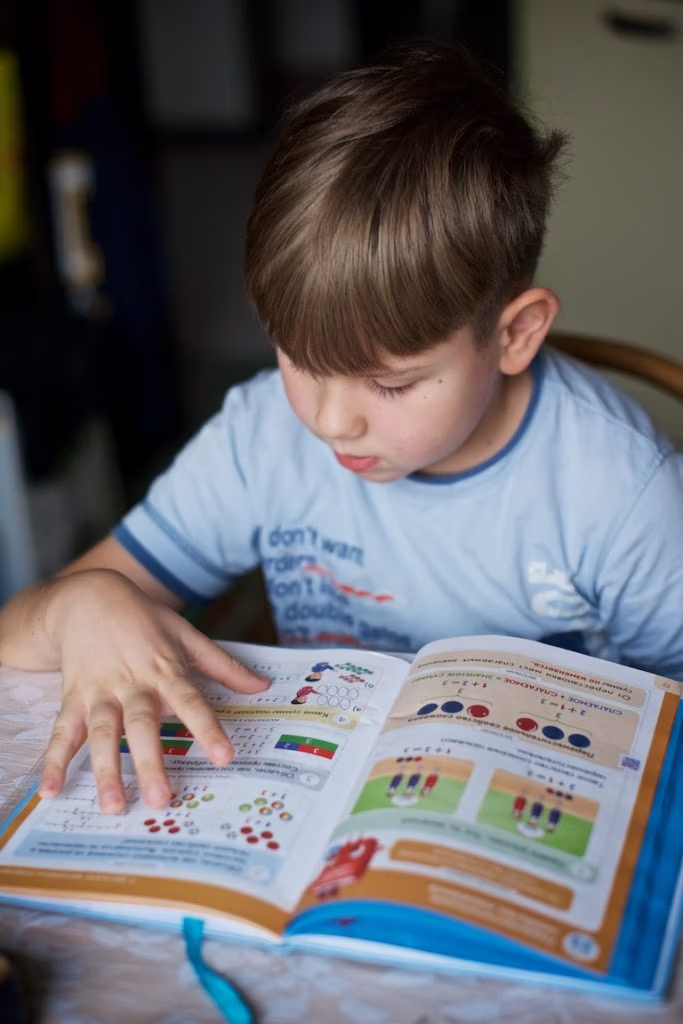Learning Disabilities
Learning disabilities are neurodevelopmental disorders that affect how the brain receives, processes, stores, and responds to information. This can lead to difficulties with specific skills like reading, writing, or math. It’s crucial to remember that learning disabilities are not a reflection of intelligence. Children with learning disabilities are just as smart as their peers; their brains simply learn in different ways.
Types of Learning Disabilities:
- Dyslexia: This is the most common learning disability, affecting reading and related language-based processing skills. Children with dyslexia may have trouble with:
- Phonological awareness: Identifying and manipulating the sounds in words.
- Decoding: Sounding out words.
- Reading fluency: Reading accurately and smoothly.
- Spelling: Writing words correctly.
- Dysgraphia: This learning disability affects writing abilities. Children with dysgraphia may have trouble with:
- Handwriting: Forming letters and writing legibly.
- Spelling: Writing words correctly.
- Organizing written thoughts: Putting their ideas down on paper in a clear and organized way.
- Dyscalculia: This learning disability affects math skills. Children with dyscalculia may have difficulty with:
- Number sense: Understanding the meaning of numbers.
- Memorizing math facts: Remembering addition, subtraction, multiplication, and division facts.
- Solving math problems: Applying math concepts and solving problems.
When do symptoms appear?
Symptoms of learning disabilities typically become apparent during the school years when children face academic demands like reading, writing, and math. However, some signs may be present earlier, such as:
- Preschool: Delayed speech development, difficulty learning new words, trouble rhyming, difficulty following directions.
- Elementary School: Struggles with reading, writing, or math, difficulty remembering facts, slow processing speed, poor organizational skills.
Prevalence:
- Global: It’s estimated that 15-20% of children worldwide have a learning disability. This translates to roughly 285 million to 370 million children.
- Egypt, UAE, and KSA: Unfortunately, specific data on the prevalence of learning disabilities in these countries is limited. However, it’s likely that the rates are similar to or higher than the global average.
- Boys vs. Girls: While learning disabilities can affect anyone, boys are more likely to be diagnosed than girls. This might be due to a combination of biological factors and referral bias (boys with behavioral issues may be more likely to be referred for evaluation).
How Can Psychiatry Help?
- Comprehensive Assessment: Psychiatrists can conduct a thorough evaluation to identify learning disabilities. This may involve:
- Reviewing educational and medical history: Gathering information about the child’s development and any previous assessments.
- Administering standardized tests: Using tests specifically designed to assess cognitive abilities, academic skills, and language processing.
- Observing the child: Observing the child’s behavior and learning style in different settings.
- Tailored Intervention Plans: Once a learning disability is identified, psychiatrists can help develop an individualized plan to address the child’s specific needs. This may include:
- Educational accommodations: Working with schools to implement accommodations, such as extra time on tests, assistive technology, or modified assignments.
- Specialized instruction: Recommending tutoring or specialized instruction to address specific skill deficits.
- Therapy: Therapy can help children with learning disabilities develop coping strategies, improve self-esteem, and manage any associated emotional or behavioral challenges.
- Medication: In some cases, medication may be used to address co-occurring conditions, such as ADHD or anxiety, which can further impact learning.
Learning Disabilities and Intelligence
It’s crucial to understand that learning disabilities are not a reflection of intelligence. Children with learning disabilities are just as capable of learning as their peers; they simply need different approaches and support to reach their full potential.
Take the First Step Today
Empower your child to thrive! With the right support, children with learning disabilities can succeed academically, socially, and emotionally. By collaborating with parents, educators, and mental health professionals, we can create a nurturing environment that helps your child overcome challenges and achieve their full potential. Contact us today to get started on this journey!
